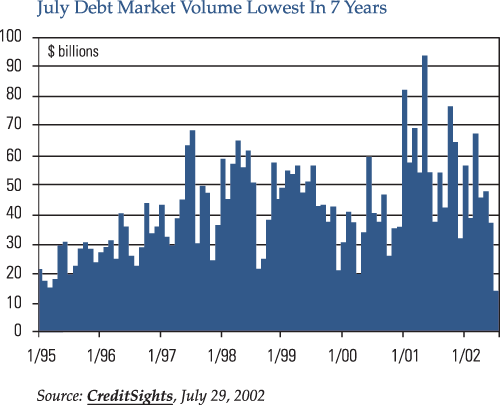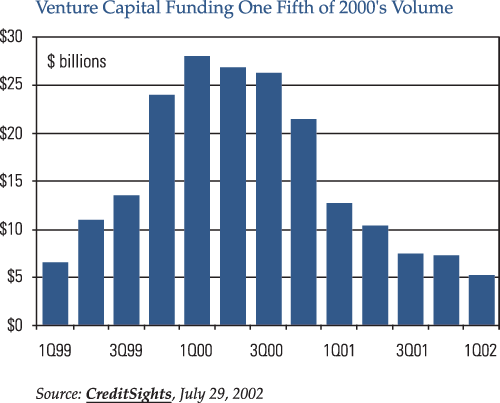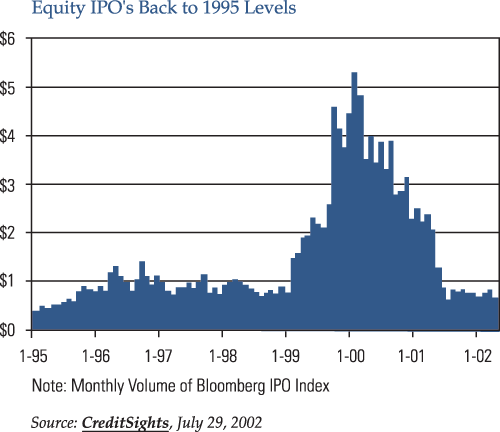Corporate Tilt
"The evidence points to cynical benchmark-gaming behavior on the part of active fixed income managers…(they) aggressively seek credit risk, hoping to boost returns above benchmark levels. By simply holding greater-than-market allocations to risky securities, bond managers increase expected returns by increasing portfolio risk, doing nothing to add value that justifies charging management fees."
- David F. Swensen
Pioneering Portfolio Management
An observer can always tell which books I've enjoyed the most simply by looking for the yellow or green highlighting; the more color the better. My copy of David Swensen's (Yale's Chief Investment Officer) book cited above resembles something of a rainbow which I suppose is an even higher compliment, because it means I've gone back over it three or four times with different colored markers - in this case blue, green, yellow, and orange. This is not to say Mr. Swensen has written a perfect book. Assertions that investors should assume U.S. equity returns of 6 percent real are sure to be given a reality check over current and future long-term holding periods, as is his belief that only government bonds should have a place in institutional and individual portfolios. But it confirmed many of my own suspicions, especially those relating to corporate bonds. "It's a lousy business" is my quote de jour in PIMCO's Investment Committee - referring to the long-term structural negatives in holding corporate obligations. How else to describe an asset class where your upside is getting your money back and your downside is losing nearly the whole kit and caboodle. How else to describe an asset class where structural "agency risk" allows management to increase shareholder value by reducing the worth of debt obligations - levering and levering up to increase earnings per share while ignoring earnings per bond. And if they go too far, well those bondholders simply receive via bankruptcy court that now nearly worthless stock - after the banks and lawyers have gotten their fill, that is. It's a lousy business, for the PIMCOs of the investment world at least.
Not lousy enough, however, to have fooled a multitude of supposedly sophisticated investors in recent years. One of the largest bond "index" funds in the world has for many years run its portfolio with a corporate "tilt" - substituting short-term Treasuries with short-term corporates in the Pollyannaish belief that bankruptcies don't occur overnight, they're "just out there somewhere" like an X-Files alien or something. Such assumptions always managed to let them beat their index by 20-30 basis points a year - until the last few years that is. Now they're underperforming by 100 or more. Payback time, I suppose. Similarly, other large bond shops, which along with PIMCO are known as the "Big Seven," cast their fate, as Mr. Swensen avers in his above-cited quotation, with corporate bonds because they yielded more. How brilliant did you have to be with a corporate overweight anyway? Hire some credit analysts, pretend you know more than the clients from whom you're charging 50 basis points and take it all the way to the bank, baby. Life is sweet with a few billion under management, 50 basis points and a corporate "tilt." Not so sweet for the clients it seems. A few of these "Big Seven" have tilted all right, but tilted as in a pinball game - meaning, "Game Over." That's what 2 percent positions in Enron and WorldCom will do for you, and that, I'm afraid, is an understatement.
PIMCO of course does not wear virgin white in the active management arena. We have our structural tilts centered around the sale of volatility and the near perpetual positive shape of the yield curve between 30 days and 12 months. We also make mistakes - witness our premature entry into energy and telecom bonds in order to cyclically increase our corporate debt exposure. But we at least have the common sense to recognize a long-term sucker's bet when we see one. Warren Buffett, or perhaps his sidekick Charlie Munger, is fond of saying that if you look around the poker table and you can't identify the fish, then you be the fish. Managers using corporate tilts may have thought they were the skippers of their own ocean-faring tuna boats, but as it turns out, they had gills and are now sucking for oxygen in a local trout farm located in a city near you. They be the fish.
Last week, the corporate bond market pond was nearly frozen solid. It has thawed somewhat in recent days, but there's still ice visible on the surface. Take a look at the charts below as an indication of the lockup and lockout of risk capital in recent months.



Corporate bond bid-ask spreads are as wide as I've seen them in years and much of the universe is quoted on a "dollar" instead of a "yield" basis, which means that these bonds are being treated as equity instead of debt. When a corporate bond is quoted 52-55, as many are these days, it's tantamount to acknowledging that they are being viewed on a liquidation (i.e. near default) basis. How did we get to this point and are things really this bad? The "darkest before dawn" analogy suggests "probably not" to the latter question. And the former query was answered substantially in last month's Outlook: The heightened suspicion of corporate dirty tricks, the near crashing stock market, the ENRON and WORLDCOM experiences with bonds plummeting from par to 10 cents on the dollar in less than a year's time - these are the triggers which cyclically (on a short-term basis) reduce markets to extremely oversold prices. We are at that point now in this near frozen corporate pond. From the depths of winter will spring surely follow. That is why PIMCO entered the telecom arena just a few short months ago. Unfortunately, what we thought was December was just a temporary freeze in the midst of fall. Mistake.
Still, while many of our corporate bond holdings (and those of other Big Seven managers) will undoubtedly do well in future weeks and months, the dominant determinants of corporate bond underperfomance will be with us for the next few years at a minimum. The rapidity of technological change - a Moore's Law of corporate bonds if you will - is one primary reason. Too many future losers seemingly doubling every 18 months with the remaining winners paying off at a maximum of par. Didn't used to be that way, pre-New Age Economy, but it is now and corporate spreads have to widen out to compensate. The second reason is the metamorphosis of the banks discussed in last month's Outlook. While the press tended to focus on my comments on hedge fund behavior (as did I), undoubtedly the most important market influence in addition to technological change has been the transition of banks from risk takers in the short-term corporate lending arena to risk avoiders - sloughing off their loans via syndications and hedging potential bankruptcies via purchases of default insurance in the (until recently) vibrant credit default market. The bank's retreat from the corporate lending arena has left a void that will take time and higher yields to fill. One day corporates will become a decent long-term bet despite their structural negatives but we'll need higher yields before that day arrives. When it does, PIMCO will be back in the water, hopefully reincarnated as a shark and not a trout.
If PIMCO's belief that (1) technological change and (2) the reversal in bank lending attitudes are key to the pricing of the corporate debt market over the next several years, it remains unclear where appropriate spreads to Treasuries should eventually rest. While many corporate bonds are trading (if at all) by dollar sign as opposed to yield, suggesting the potential for huge gains or huge losses, there is no J.P. Morgan of the 21st century willing to step up to the plate and "save" the market. Some would suggest Greenspan is that man. The Fed's staff has for instance in the past year or so done academic studies on the potential for the Fed to buy either corporate bonds or stocks in an emergency situation. Preliminary indications seem to indicate that they believe the Fed can do anything it is not specifically prohibited to do, and therefore the support of corporate bonds would be fair game. Our "close to the Fed" sources, however, suggest that while Greenspan might have the authority to act, he is in no way disposed to. WE understand that he is well pleased with the off-loading of credit risk from the banks to the Big Seven and insurance companies alike. To his mind, the moving of risk from a levered sector (the banks) to an unlevered sector (investment managers and insurance companies) is just what the doctor ordered to stabilize the economy in an emergency environment. Perhaps. But let me alert you, Mr. Greenspan. The corporate market at the moment is close to full tilt, half frozen, trading on price - not yield. While you perhaps contently rest on the historical laurels of near 0 percent real Fed funds, its stimulation to the housing market, and your hopes for an eventual robust recovery, the cost of capital for corporations is nowhere near 13/4 percent or even that 6 percent level available to first time borrowers in the mortgage market. The cost of capital for Baa and lower corporations is in double digits. Aa and A companies can barely come to market. You sir, have a problem. If the cost of corporate capital skyrockets, the markets move the other way, and then of course, the economy follows.
And oh, for sceptics who will claim that this is an attempt to get the Fed to bail PIMCO out of its lousy corporate positions - forget it. I like my Sprint bonds even though I bought them at 95 cents on the dollar instead of the current level of 60. Anyway, despite my assertions that Fed staff have researched the possibility, I do not believe they will or even should do so. We're corporate light, even though in this case one Lite beer is one too many. We have only benefited from the naiveté of the "corporate tilters" that went too far. We're in the catbird's seat such as it is or better yet the Captain's chair on that tuna boat sailing on the high seas. It's just fair warning that with a tilting corporate bond market, the economy itself may not be far behind. Let's just hope the pinball analogy doesn't apply to the economy itself and that we soon aren't forced to declare "Game Over." Greenspan's almost out of quarters.
William H. Gross
Managing Director
Disclosures
Past performance is no guarantee of future results. All data is as of 6/30/02 unless otherwise indicated and is subject to change. Investment return will fluctuate and the value of an investor's shares will fluctuate and may be worth more or less than original cost when redeemed. This article contains the current opinions of the manager and does not represent a recommendation of any particular security, strategy or investment product. Such opinions are subject to change without notice. This article is distributed for educational purposes and should not be considered investment advice.
Each sector of the bond market entails some risk. Municipals may realize gains & may incur a tax liability from time to time. Treasuries & Government Bonds guarantee is to the timely repayment of interest and does not eliminate market risk, shares of the funds are not guaranteed. Mortgage-backed securities & Corporate Bonds may be sensitive to interest rates, when they rise the value generally declines and there is no assurance that private guarantors or insurers will meet their obligations. An investment in high yield securities, lower rated securities generally involves greater risk to principal than an investment in higher-rated bonds. Investing in foreign securities may entail risk due to foreign economic and political developments and may be enhanced when investing in emerging markets.
No part of this publication may be reproduced in any form, or referred to in any other publication, without express written permission. This is not a recommendation or offer of any particular security, strategy or investment product, but is distributed for educational purposes only. Copyright ©1999-2003 Pacific Investment Management Company LLC. All rights reserved.
